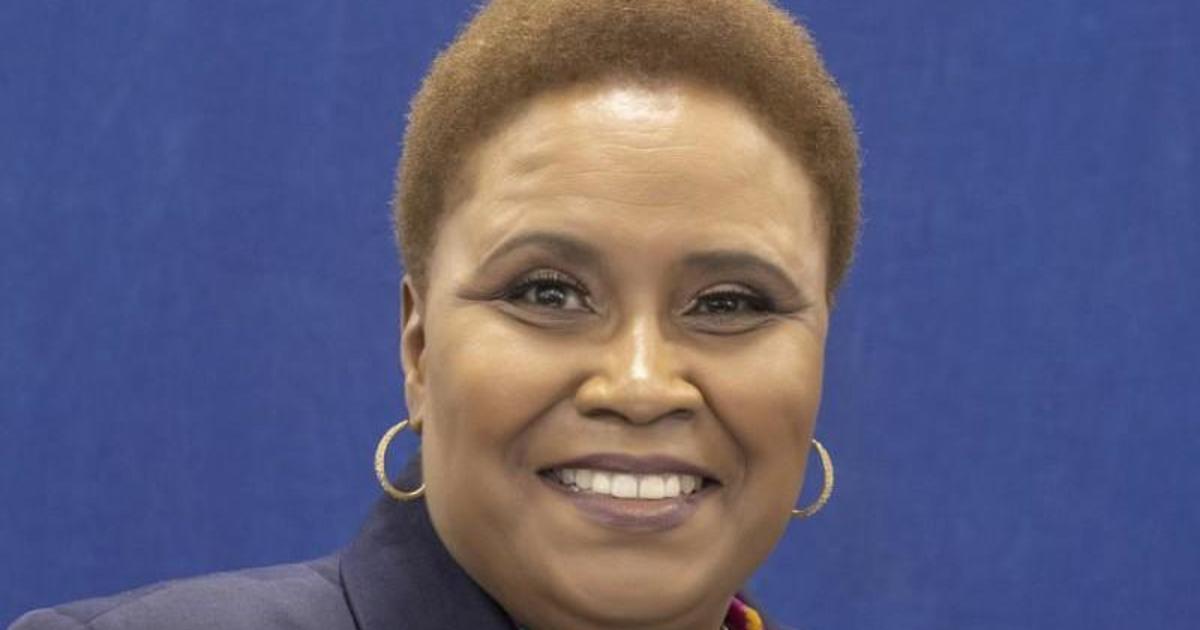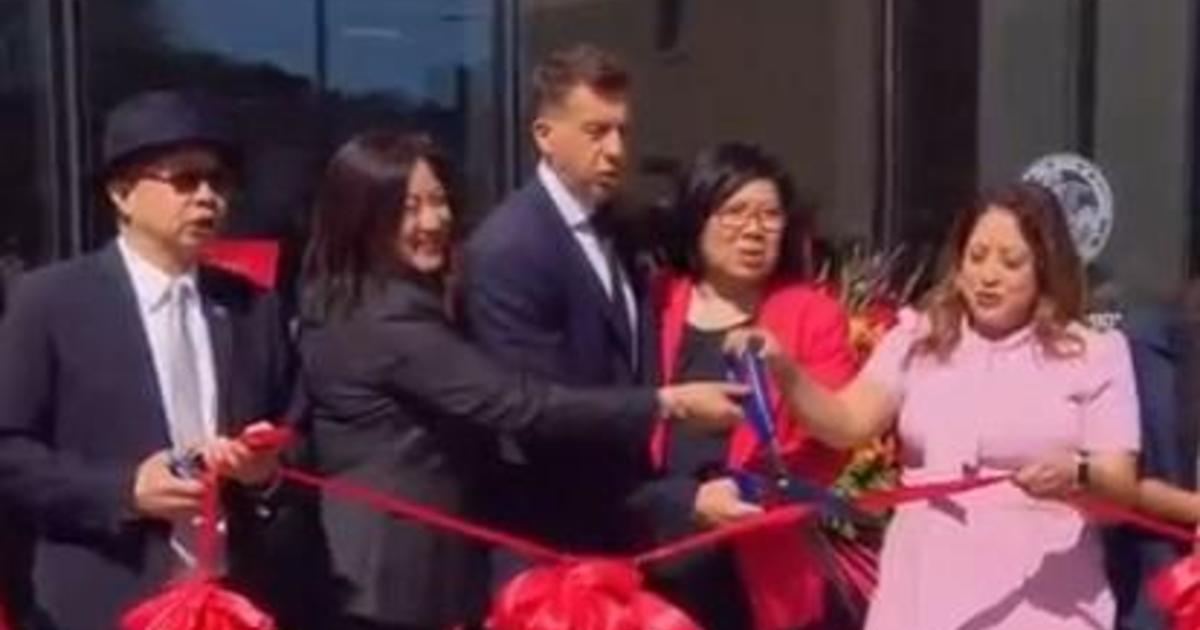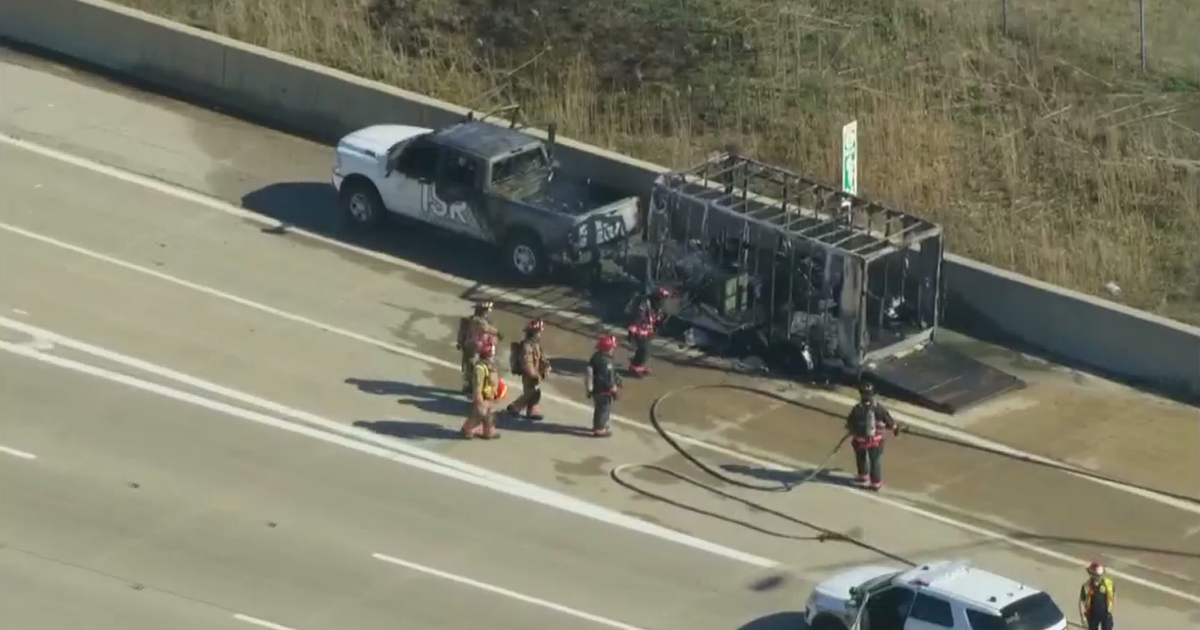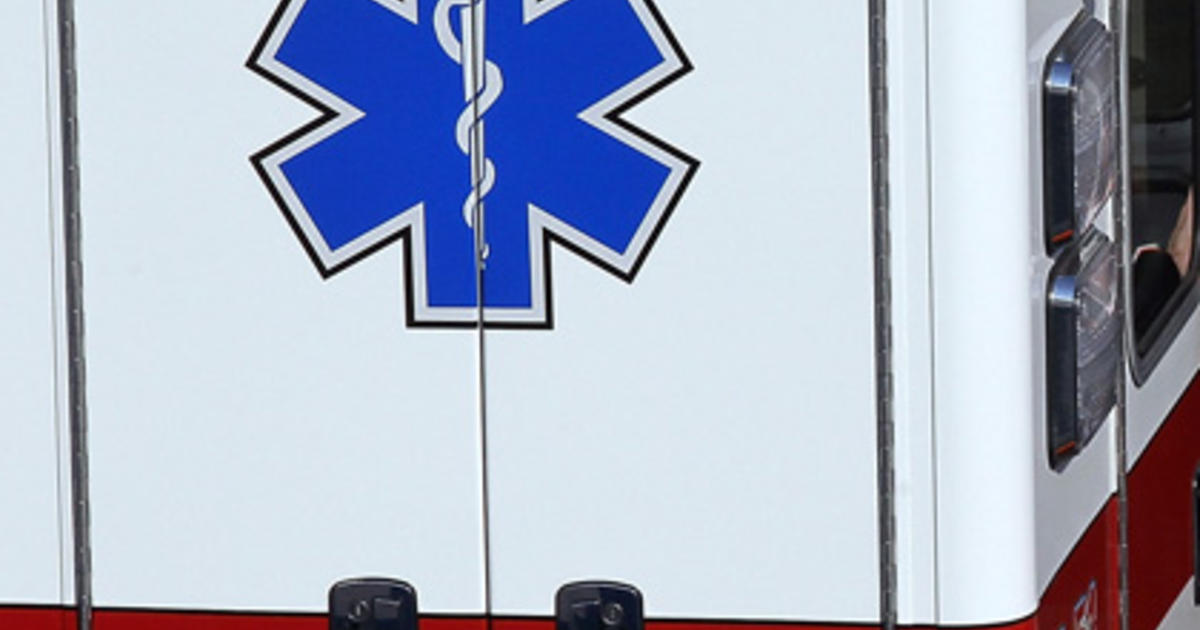Medals Make For A Most Memorable Memorial Day For Veteran, 96
PALOS HILLS, Ill. (STMW) -- Anthony Vaccarello will proudly display his American flag this Memorial Day, just as he does every year.
"It's the only one on the block," the 96-year-old World War II veteran said.
It is also likely that his simple act of climbing his ladder to hang his flag outside his Palos Hills residence will stir up the deep emotions of this day, and the memories of his friends and comrades who were killed in action some 70 years ago, the Southtown Star reports.
But this Memorial Day, along with his flag, the Army vet can now display the 11 medals, badges and ribbons he only recently received for his four years of service in World War II, triggering more memories and images of war.
He modestly attempts to shrug off the medals, as if he doesn't care.
"It took 1½ years to get them. I wasn't worried about it," he said. Then, pointing to his granddaughter, Michele Vaccarello Wagner, who is cradling his first great-grandchild, he said, "It's all her fault."
When the war ended in 1945, no medals were handed out in ceremonies, no parades were held. The hard-earned medals were forgotten over time.
Nearly two years ago, when her grandfather made an Honor Flight trip to Washington, D.C., with other World War II vets, Wagner thought it "would be nice" if he had his medals.
"He's such a wonderful person," she said. "He's a very humble and patriotic man."
With his discharge papers in hand, she wrote, called and sent emails to the National Personal Records Agency in St. Louis, not even certain which medals he had earned.
"It took so long because they had to make some of them. I wonder how many other vets do not have their medals," she said.
It turns out Vaccarello had quite a few coming to him, including the Bronze Star, medals for Good Conduct, American defensive service, the American campaign, Asiatic Pacific campaign, and the World War II victory medal. Vaccarello also earned a first award combat medical badge, the Philippine liberation ribbon, an expert badge for bayonet skills, a marksman badge and an honorable service lapel button.
"If not for my family, I would not have my medals. They are beautiful," he conceded.
The memories they evoke are mixed. The old vet certainly experienced the grim side of war, but also found a few good times.
Recollections
Vaccarello still can vividly recall the day he joined the Army with his best friend, Angelo Buttice — July 3, 1941. The war was in Europe then and had not yet involved the United States. He was 24 with a full-time job at the Omaha Packing Co.
At the time, everyone between 18 and 35 had to register for active duty, he said. His friend had one of the first numbers and was going in on July 3. Vaccarello's number was going to be called next.
"So I volunteered and went in a month earlier so we could go together," he said. A fireworks show at Soldier Field was their send-off as they headed to basic training in Texas.
But after basic training, Buttice went into officer training and later became a lieutenant. Vaccarello was sent to Minnesota.
"I joined because it was seemingly only for one year. I joined with a selfish motive. I only planned to serve one year. I wanted to get my year over and get back to my life," he said.
He admitted he never thought far ahead, never thought he would be at war, even though "Hitler was having a field day" in England at the time, he said.
Soon after he joined, his length of service was extended to 18 months. Then Pearl Harbor was attacked, and Vaccarello's tour of duty was extended again — for the duration of the war. He was transferred to Minnesota with his trombone in tow, hoping to make it into the Army band, but the Army had other plans.
He was sent to Cheyenne, Wyo., where he pawned his trombone, thinking he would pick it up when he got out of the service. He shook his head, wondering what he must have been thinking then.
After a brief stint in Wyoming, Vaccarello was back in Texas, where a new hospital opened. They needed volunteers for the X-ray department and he raised his hand, even though he knew "nothing" about X-rays — a relatively new technology at the time.
After two years of being in charge of the hospital's X-ray department, he was picked to go to the Philippines, where there was a lot of combat and close calls.
"He gets very emotional talking about the war," his granddaughter said.
Earlier, his friend Buttice had been sent to the Philippines, only to be killed on his first day there, by a bullet through his helmet, Vaccarello recalled.
When Vaccarello arrived, he said the first thing he saw were bodies of American soldiers — about a hundred of them — piled on top of each other in stacks of five or six.
"An image like that stays with you," he said. He knew he was in for some action.
"Those who survived, surrendered," he said. But he also recalled being in the trenches, heard bullets whizzing past his ears and saw the soldier behind him fall.
Even though his new display features medals for marksmanship and bayonet skills, Vaccarello said he never killed anyone.
Still, this soldier from the South Side of Chicago liked Manila — a city with a 12-foot wall around it — and found a "nice bar" there where he could unwind.
"I liked to have a good time, and I found places where I could have a good time," he said.
Japan was next. His gear was packed. Two days before Vaccarello was scheduled to leave, the war ended. He still was sent for a month to "keep the peace," he said. Although he did not see the destruction of the bombs dropped on Hiroshima and Nagasaki, when he arrived he did see that artillery had been hidden in the mountains, aimed at the very spot on which he had landed.
"That freaked me out," he said, realizing that he escaped death again.
But he was equally surprised to discover that the Japanese were "very nice" to the American soldiers, he said. He and his comrades were invited into a family's home for dinner. He still has the Japanese sword they gave him as a gift.
Back stateside
The best part of being in the service, of course, was "going home," Vaccarello said without hesitation. He left with one more souvenir, however — malaria — which he endured for 20 days on a ship before landing in Seattle.
"I wanted to go home. I was glad to get back," he said, He had missed his favorite foods — pasta fagioli and spaghetti and meatballs.
Even though he only signed up for one year, Vaccarello said he didn't mind serving four years.
He survived the war and was able to attend the memorial service for Buttice, whose body was returned to his family five years after his death.
He married Faye, whom he met while dancing at the Aragon Ballroom — a marriage that lasted 62 years and produced three sons, five grandchildren and one great-grandchild.
With his army training, the former soldier was "never out of a job," working as an X-ray technician at Mercy Hospital, then Holy Cross, and lastly, Christ Medical Center in Oak Lawn.
"I have no regrets about going [into the Army] but I was not glad to go. I lost quite a few friends," he said.



